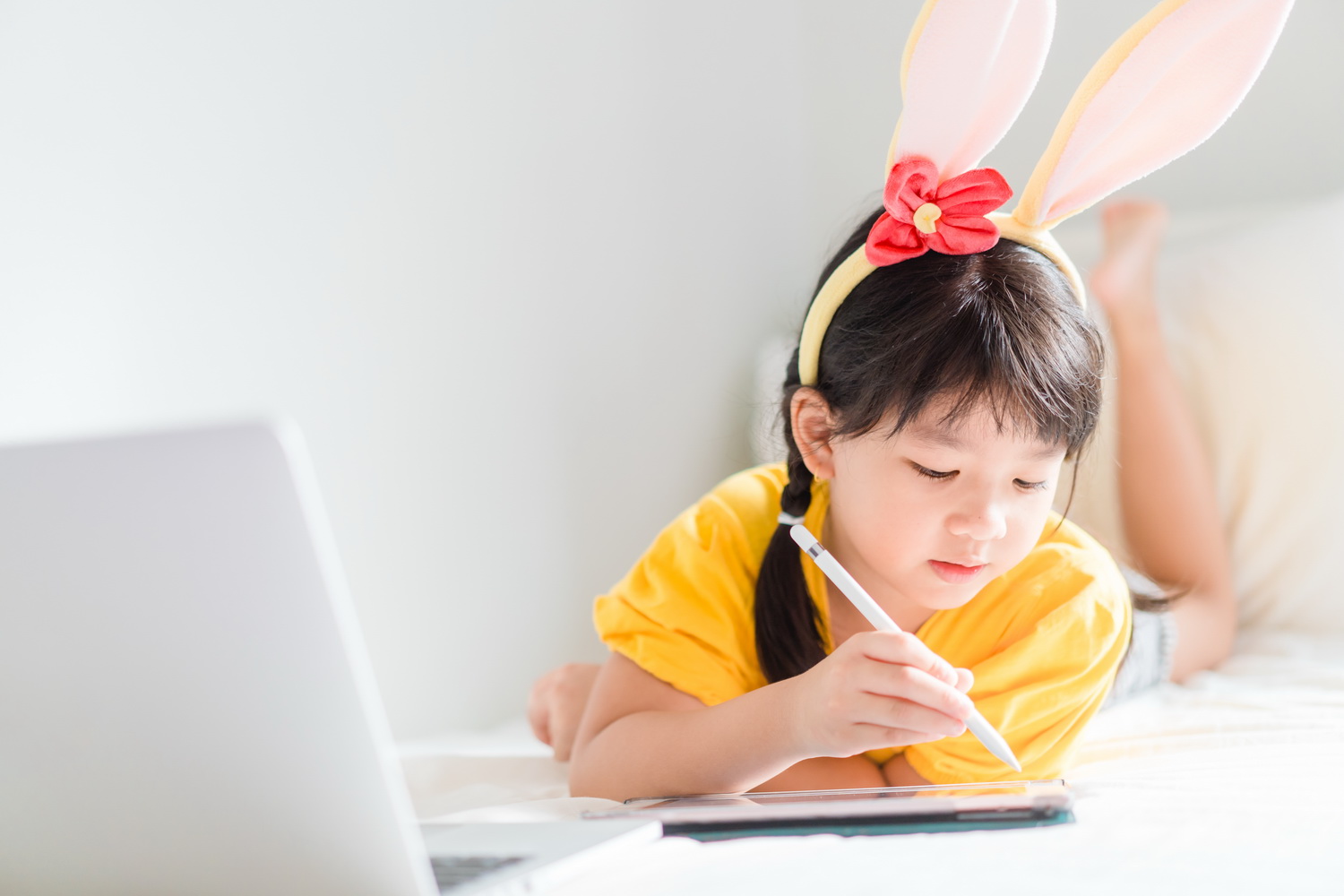Multiplication practice Numbers Worksheets for Ages 3-8
5 filtered results
-
From - To
Welcome to our Multiplication Practice Worksheets for Ages 3-8! Designed to make learning fun and interactive, our printable worksheets help young learners master multiplication concepts through engaging activities. Tailored for early learners, these worksheets feature colorful illustrations and easy-to-understand problems that encourage kids to practice their multiplication skills in a playful manner. Perfect for home or classroom use, these resources enhance arithmetic fluency and build a solid mathematical foundation. Whether your child is just beginning to explore multiplication or needs extra practice, our collection is an excellent tool for fostering confidence and ensuring success in math. Get started today!
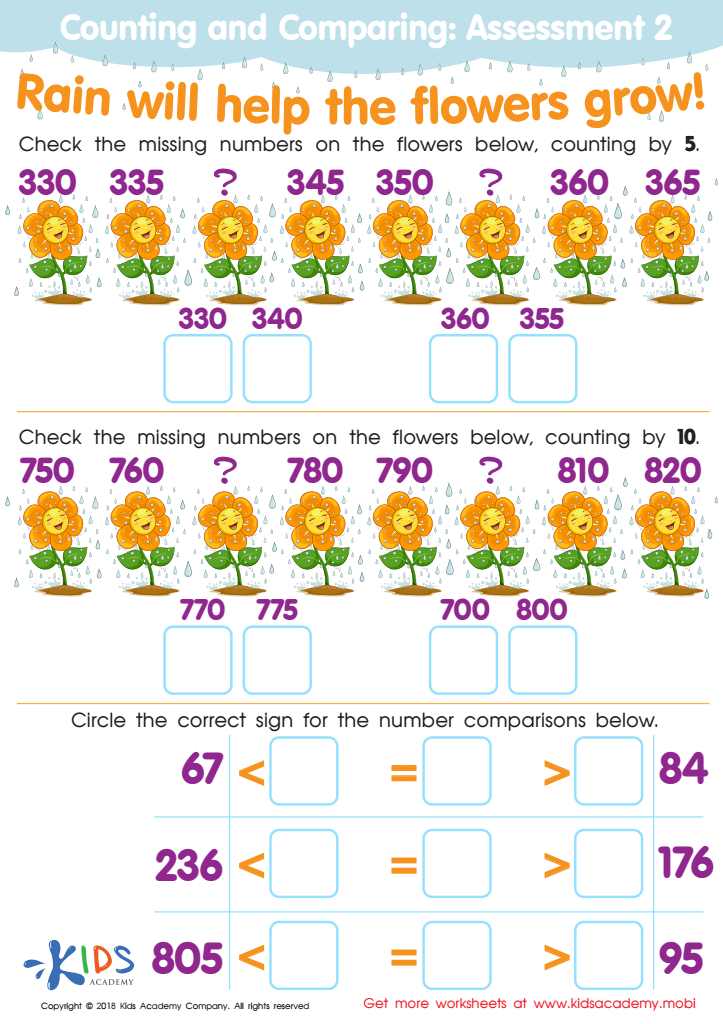

Counting and Comparing: Assessment 2 Worksheet
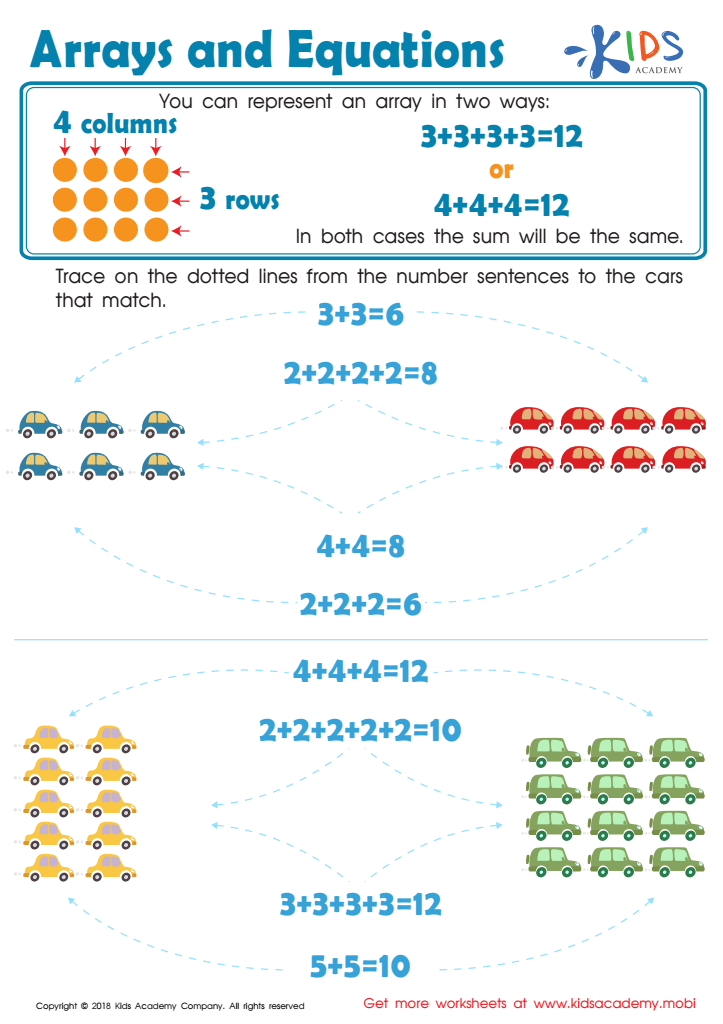

Arrays and Equations Worksheet
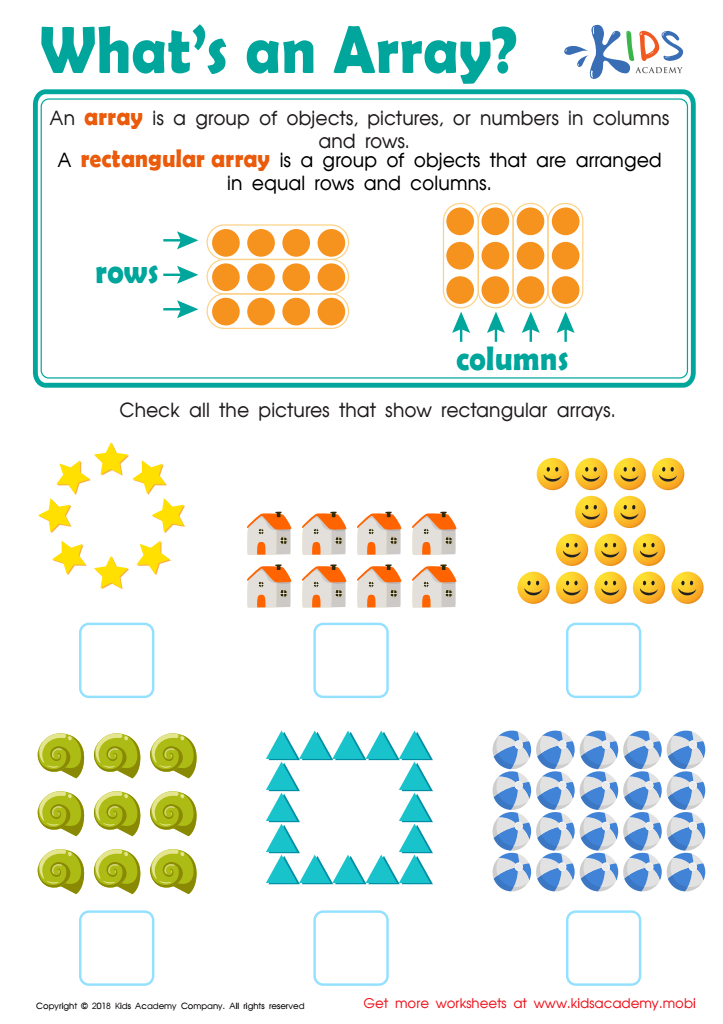

What's an Array? Worksheet
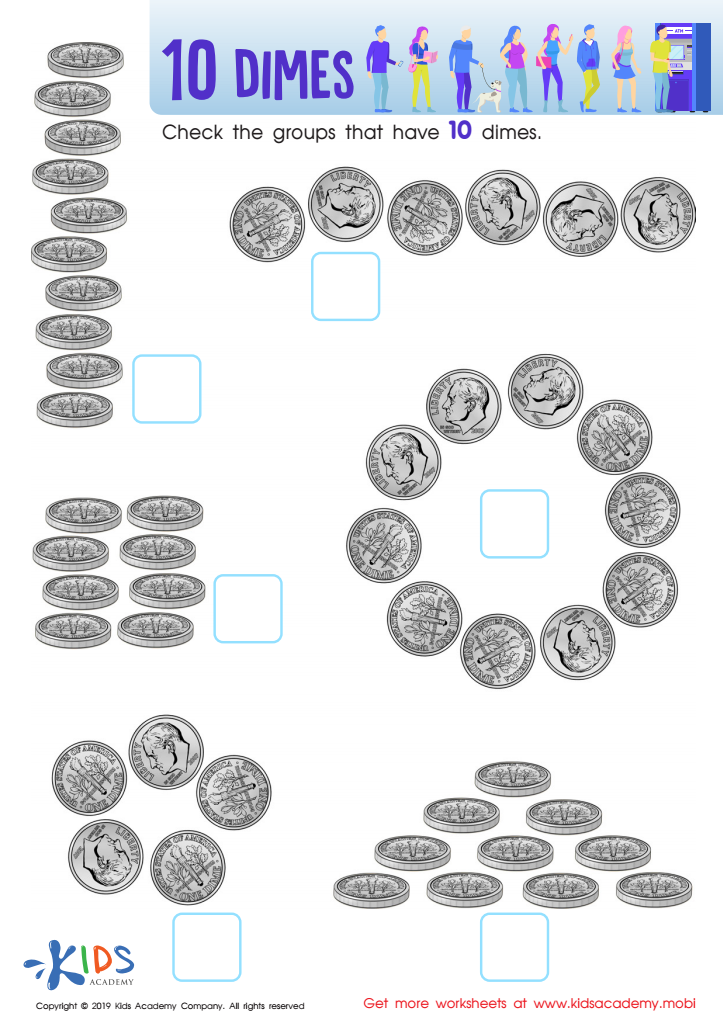

10 Dimes Worksheet
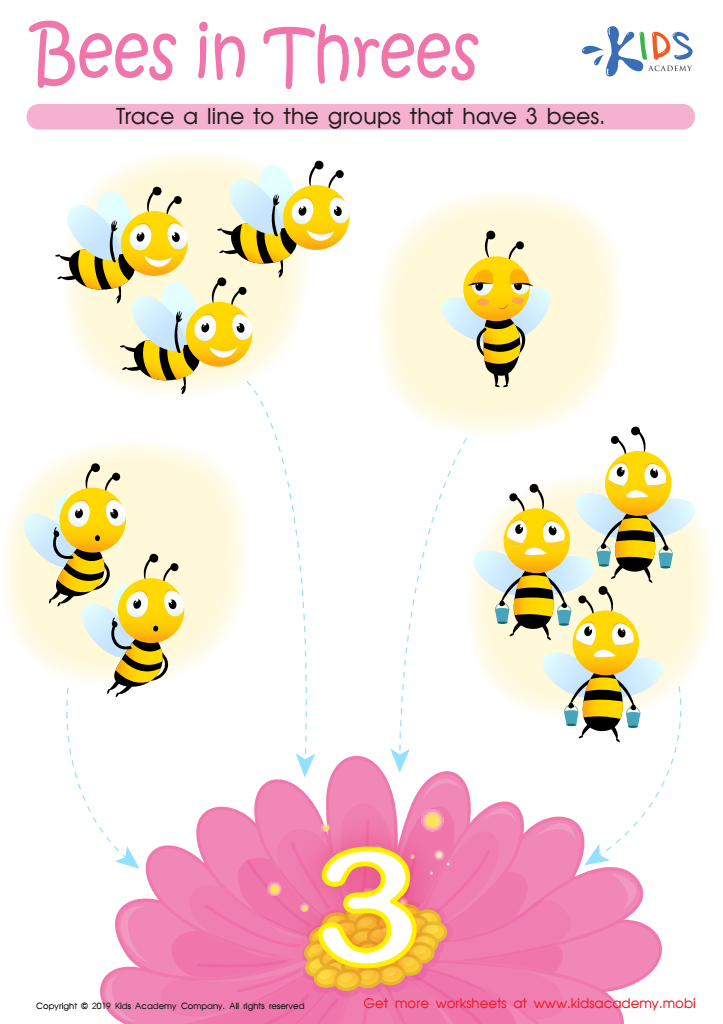

Bees in Threes Worksheet
Parents and teachers should care about multiplication practice for children aged 3-8 for several reasons. First, early exposure to multiplication lays the groundwork for a strong mathematical foundation. Understanding multiplication concepts and operations enhances problem-solving skills and higher-level thinking needed in later grades.
Second, practice helps build fluency and confidence in math. As children become familiar with multiplication facts, their ability to perform calculations improves, making them more willing to engage with complex math concepts as they progress in their education. This foundational skill is crucial as multiplication is a core element of math curricula, impacting subjects like division, fractions, and even basic algebra.
Additionally, incorporating multiplication practice into daily routines can make learning fun. Games, songs, and interactive activities turn what can be a daunting subject into an enjoyable one. This positive association with math promotes a lifelong love for learning.
Moreover, early multiplication skills contribute to overall cognitive development. Practicing these skills engages children's critical thinking, enhances memory retention, and refines their analytical abilities. In summary, prioritizing multiplication practice not only supports academic success but also nurtures a well-rounded intellectual growth in young learners.

 Assign to My Students
Assign to My Students




